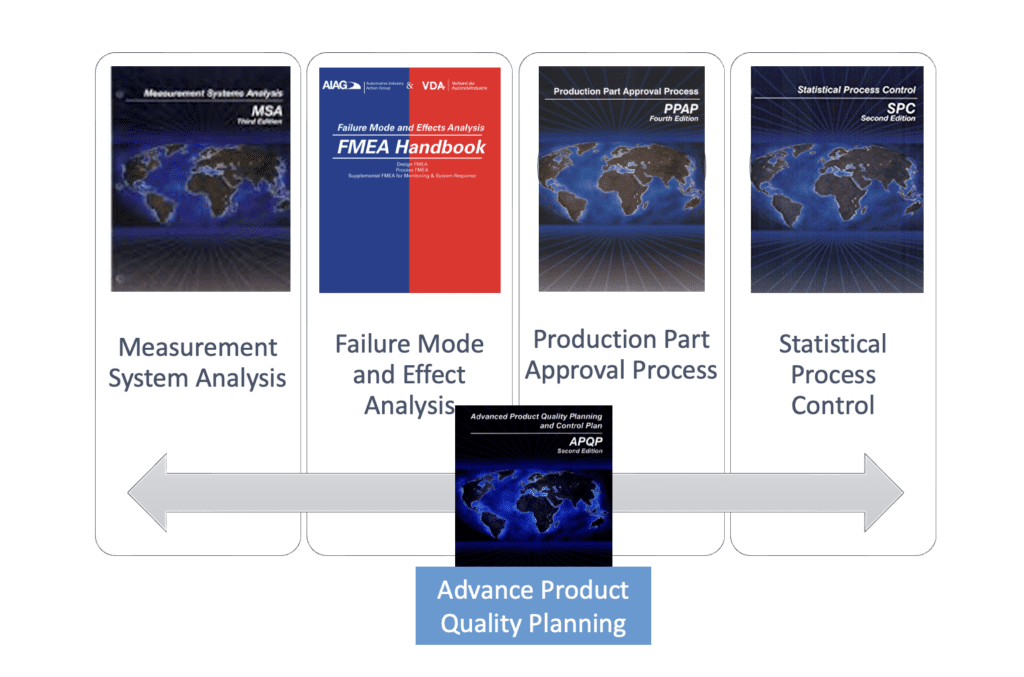Core tools are recognized as a standard throughout the entire automotive industry. The most well-known are those published by the AIAG organization. These tools consist of five reference documents: PPAP, APQP, FMEA, SPC, and MSA.
We use those documents throughout the product life cycle, from the pre-launch phase, through current production, to the delivery of service parts after the End of Project.
In addition, they are the basic components of the Quality Management System (QMS), which guarantees the production of quality components delivered on time to the customer.
In the United States, the aerospace, defense, pharmaceutical, and medical industries are adopting core tools as their standard requirements throughout the supply chain, similar to how the automotive industry has done with IATF 16949:20216.
Core tools – Advantages
The undeniable advantage of using core tools is the facilitation of communication between suppliers and customers. This is achieved by providing a common language and process for designing and manufacturing products.
Internal auditors of the Quality Management System should also be familiar with them (IATF requirement 7.2.3 Internal auditor competency). They are also important for third-party auditors and the relevant departments involved in the launch of a given project. They should not be treated as separate manuals without being linked to each other.
Just like the APQP phases, the core tools interact with each other. For example, failure to perform an SPC for special characteristics may result in the customer not granting approval for a manufactured component prior to the official Start of Production (SoP).

Fig. 1. Core tools from the perspective of the AIAG organization.
Types of reference manuals
Below, I describe the five manuals that make up the core tools:
– PPAP Production Part Approval Process – The PPAP is essential for ensuring that a supplier can meet the manufacturing and quality requirements of the parts supplied to customers. It involves a detailed process of validation before production begins, including the submission of various documents and samples. This process culminates in a formal approval that the parts meet all specifications.
– FMEA Failure Mode and Effects Analysis – FMEA is a systematic approach to identifying and addressing potential failure modes within a product or process. It helps in evaluating the risk associated with different failure modes and implementing measures to mitigate them. Jointly developed by AIAG and VDA, this tool enhances reliability and safety by anticipating issues before they occur.
– SPC Statistical Process Control – SPC involves using statistical methods to monitor and control a process. By analyzing the variability in manufacturing processes, it helps maintain consistent quality and performance. Regular monitoring allows for the early detection of problems, enabling timely interventions to keep the production process within specified limits.
– MSA Measurement System Analysis – MSA assesses the accuracy and precision of measurement systems used in the manufacturing process. It evaluates various factors such as equipment, operators, and procedures to ensure that measurements are reliable and consistent. This tool is crucial for maintaining the integrity of quality control data.
– APQP Advance Product Approval Process – APQP is a framework of procedures and techniques used to develop products in the automotive industry. It ensures that we meet all quality requirements from the design phase through to production.
This comprehensive guide coordinates the use of PPAP, FMEA, SPC, and MSA throughout the product development cycle, ensuring a systematic approach to achieving quality objectives.
Dariusz Kowalczyk


